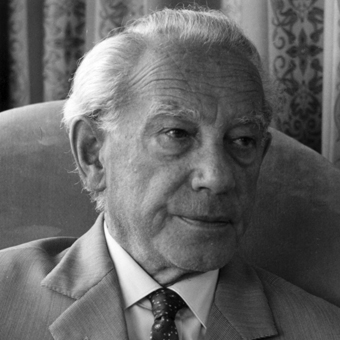
Wladimir Vogel
Wladimir Vogel emigrated from Russia in 1918 * Was driven driven out of Germany in 1933 after he had worked as a music critic and composition teacher in Berlin, lived in Switzerland from 1964 * A pupil of Busoni, he wrote works in almost all genres * His works from the twenties share an expressionist, sometimes even aphoristic tendency with Scriabin * As a member of the 'November Group', promoted modern music and worked on synthesis of oriental sound and Western forms * In the 1920s he abandoned classical forms forever * Employs vertical (non-linear) dodecaphony * In his cantata-like choir works he developed a technique of spoken chorus which was to become fundamental for modern music * The humanist ethos of his music is independent of schools and ideologies but nevertheless influenced various groups within the more recent history of music
Works by Wladimir Vogel include:
Four Etudes (1930-32) for orchestra
Gotthard Cantata (1956) for high baritone and string orchestra
Concerto for Violin and Orchestra (1937)
Yet Jonah went to Nineveh (1958) for baritone, speaker, spoken chorus, mixed chorus and orchestra
"The composer's subjectivity may form the background. What is important, though, is that a certain degree of identification by the listener is made possible through the musical statements in order to follow the music." — Walter Labhart
